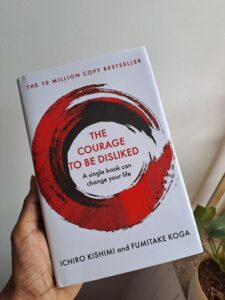We’re hardwired to crave connection like we crave pizza at midnight. From childhood, our brains light up when someone mirrors our emotions—a phenomenon psychologists like Carl Rogers called “unconditional positive regard.” Enter AI, the ultimate mimic. It doesn’t feel your joy or grief, but it’s trained on mountains of human chatter to parrot back responses that hit like a cozy blanket. Researchers have observed this uncanny dynamic: AI’s ability to reflect our emotions back to us—like a high-tech magic mirror that swaps “fairest of them all” for “I hear you”—taps into a primal human need to feel seen. No wonder companionship and therapy are projected to dominate AI’s future uses, as noted by the Harvard Business Review.
Let’s be real: AI doesn’t have a heart. It can’t share your existential dread over climate change or your euphoria after nailing a karaoke rendition of “Bohemian Rhapsody.” But here’s the kicker—we don’t care. A study in Communications Psychology found that AI responses were rated as more compassionate than those from expert humans, even when participants knew they were talking to bots. Why? Our brains are suckers for emotional validation. Reflective language (“That sounds tough”), nonjudgmental vibes, and perfect recall (no forgotten anniversaries here!) trick us into feeling understood. As researcher Anna Ovsyannikova notes, “AI’s responses are like emotional fast food—quick, satisfying, and engineered to hit the pleasure centers.”
Human relationships, by contrast, are messy. Friends cancel plans. Therapists take vacations. Partners, forget your allergy to cilantro. But AI? It’s the ultimate low-stakes companion: always on call (no ghosting here!), zero judgment (unless you ask it to roast you), and no emotional baggage (RIP, toxic exes). This “idealized” dynamic is why companionship and therapy are projected to be top uses for generative AI by 2025, per Harvard Business Review. But there’s a catch: AI’s “empathy” lacks the grit of real human bonds. No awkward fights, no messy reconciliations—just a smooth, algorithmically curated echo chamber.
Here’s the twist: AI doesn’t “understand” you—it reflects you. By pooling data from millions of conversations, it mimics your speech patterns and emotional cues like a digital parrot. This can feel validating (who doesn’t love a good echo?), but it’s a one-way street. Growth often comes from friction, and while AI’s relentless agreeableness feels comforting, researchers warn it might lack the “productive discomfort” human interactions provide. As the Harvard Business Review notes, AI’s tendency to mirror rather than challenge us risks turning it into a “yes-man” for our echo chambers—great for validation, less so for growth. Yet, for many, that’s the appeal. Imagine a therapist who never forgets your childhood traumas or a friend who’s always down for a 3 a.m. rant about your life. The question isn’t whether AI can replace humans—it’s whether we’ll start preferring its frictionless charm.
We’re entering an era where “fake” empathy might be good enough. AI companionship is booming because it’s convenient, scalable, and relentlessly positive, as Marc Zao-Sanders writes in the Harvard Business Review. But outsourcing our emotional lives to machines raises thorny questions: privacy risks (Is your chatbot selling your secrets?), bias (Who programs the “empathy”?), and emotional dependence (Can you really bond with a toaster?). Still, humans are pragmatic. If scrolling through TikTok comments or venting to Replika soothes our souls, does it matter if the compassion isn’t “real”? We’ve always anthropomorphized the world around us—from confiding in pet rocks to bonding with Tom Hanks’ volleyball, Wilson. AI companionship, now projected to be a top use of the technology by 2025, is simply the newest iteration of this age-old quirk.
AI won’t replace human connection, but it’s redefining it. Whether it’s a late-night chat with ChatGPT or a digital “therapist” that never judges, we’re learning that sometimes, a well-timed algorithm can soothe the soul—even if it’s just pretending. So next time your chatbot drops a perfectly empathetic response, ask yourself: Is this enough?
Or just enjoy the serotonin boost. Your call.

